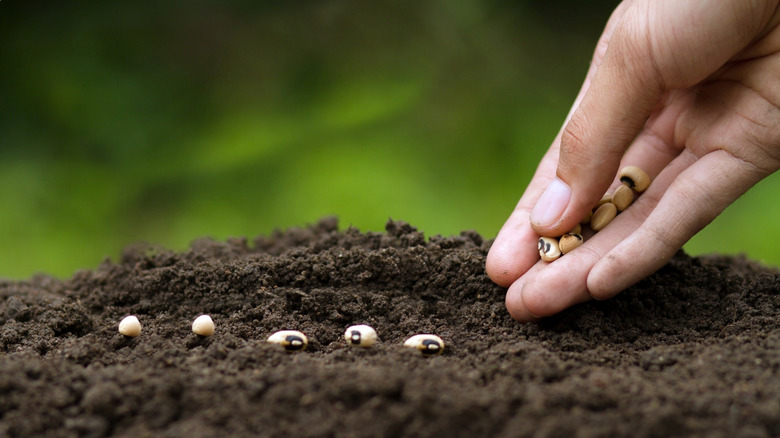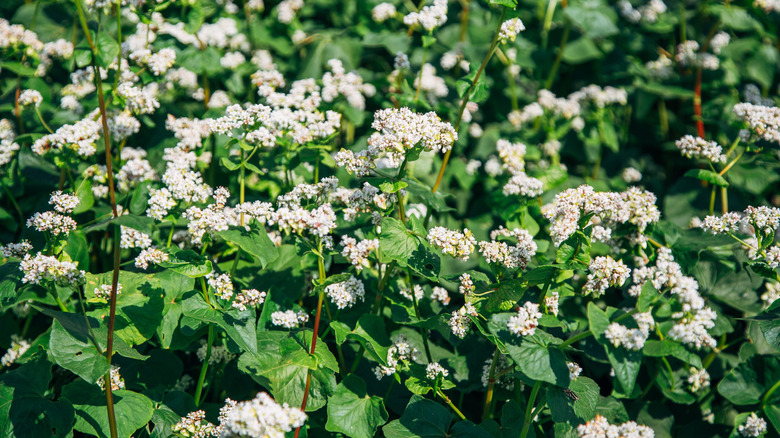The Pollinator-Attracting Plant That'll Naturally Improve The Quality Of Your Soil
Planting new plants in your yard or garden takes a bit of planning outside of the aesthetics you're hoping to achieve. Native plants are generally encouraged for better ecosystem viability, and it's always a good idea to know which USDA growing zone you are in to ensure a plant in question will grow well in your region. Other considerations include a variety of plants that may benefit pollinating species, such as bees and butterflies, as well as those that have the potential to naturally improve the health of your garden soil. It turns out that buckwheat (Fagopyrum esculentum) is one such plant that may attract pollinators and improve soil health, and many species are native to western North America.
Buckwheat is perhaps best known as a food crop planted in agricultural settings, though these species are primarily native to Asia. The seeds can be ground up and used in cereals and other grain-based products, and the plant is also used to help feed livestock and to attract honeybees. Despite its use in larger industries, there are actually more than 250 species within the buckwheat genus, and many of these species grow in the wild. They can also make good additions to a home garden thanks to their fragrant white and pink flowers, as well as their ability to attract honeybees and other nectar-feeding insects. As such, you can consider planting them along with other plants for your pollinator garden. Buckwheat also grows relatively quickly, which is yet another reason why the plant can be appealing to home gardeners. In fact, the plants can start flowering in as little as 3 weeks.
How buckwheat can improve soil health
Aside from its ability to grow rather rapidly and benefit bees, buckwheat is coveted for its ability to improve soil health. This is the case in both agricultural and home settings. In particular, the plant can help release phosphorus into the soil that may be used by other plants. Buckwheat is primarily known for improving the health of topsoil, where it may also help improve overall water infiltration for itself and other plants nearby. Buckwheat can also help control weeds, especially when it is planted densely together. This is why it is known as one of the various crops that can help suppress weeds in your garden.
While buckwheat can help improve soil quality and can still grow in soils with little nutrients, it still needs well-draining soil in order to thrive. The plant also does best in full sun where it can get at least 6 hours of direct sunlight per day. It's suitable for USDA Hardiness Zones 3 to 10. Before planting buckwheat in your garden, be aware that the plants can be toxic to humans and pets, and they can cause contact dermatitis if you handle them without wearing gloves. Take care with handling buckwheat, and make sure you monitor any children and pets when outdoors.

